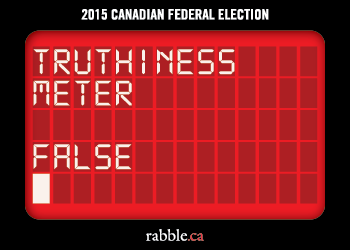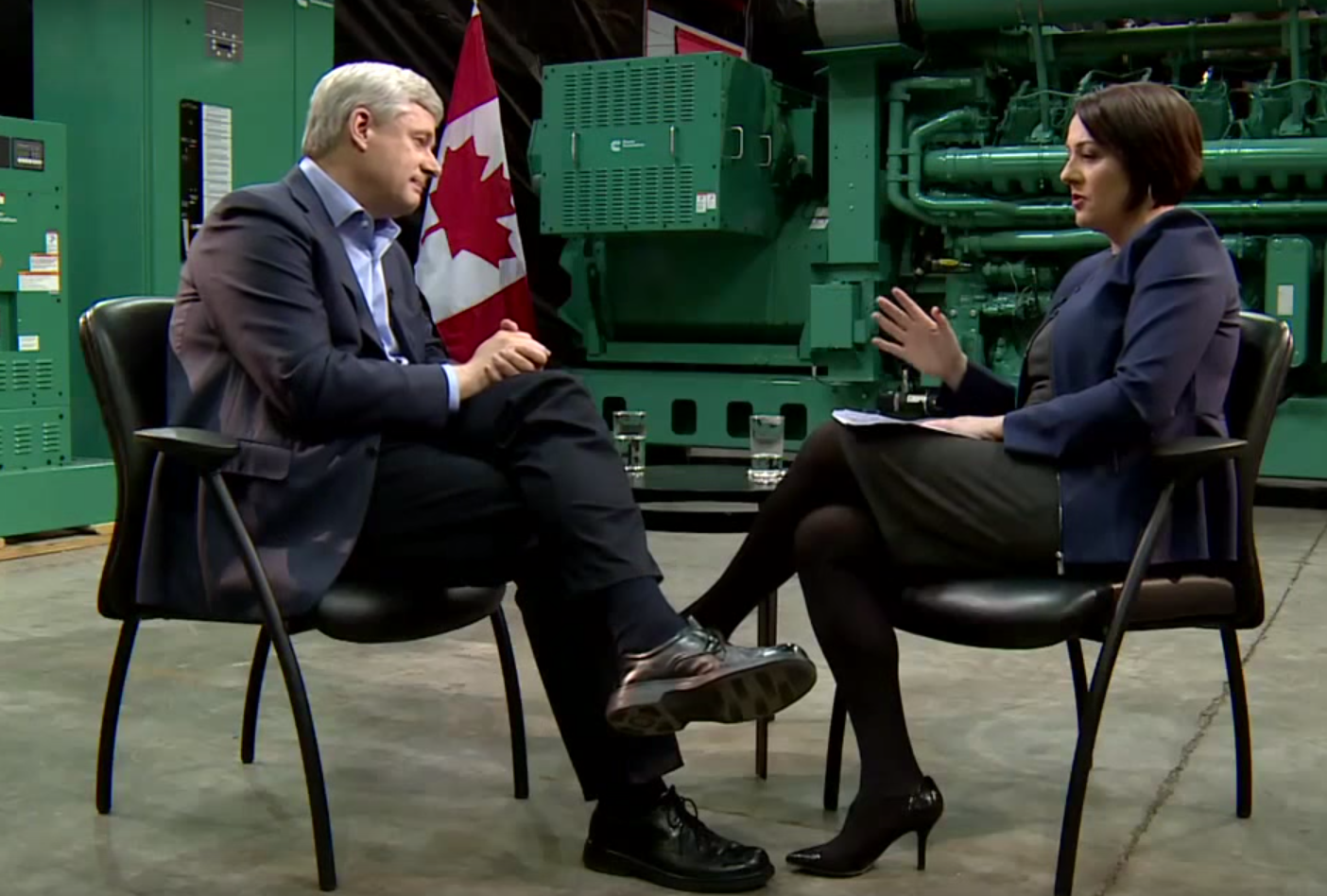Want to see an election campaign fact rich and spin poor? Chip in to keep our fact check blog up to date.
The Claim: The Conservative Party says “We believe that [the TPP] offers enormous benefits for the automobile sector.” Is this true?
The Trans Pacific Partnership is big. Very big. So big that it outpaces NAFTA. In fact, it replaces it. Butter, cheese, drugs, cars — all are implicated. But automobile manufacturing is arguably the most important sector of the lot — at least as it relates to job figures and shoring up Canada’s rather large trade imbalance.
On Monday, Harper sat down with the CBC’s Rosemary Barton at a factory in Whitby, Ontario. Flanked by large glossy machines, he reminisced about the times he thought the TPP might not have happened 5-8 months ago and how Canada had to participate in trade negotiations because “you’re either negotiating your way in now or begging your way in later.” Canada’s largest private sector union, Unifor, doesn’t see it that way and suggests that, on the contrary, the TPP will be devastating for the auto sector.
Unifor has reprimanded the Conservatives’ secrecy and pointed out their mixed free trade messaging has promised both an agreement that was in the best interest of Canadians and one that not everyone will be happy with.
In Whitby, Harper compared the economic community’s response to TPP with the Comprehensive Economic and Trade Agreement (CETA) with the European Union: “I think we’ve got a very good deal…I think we’ve got a better overall unified reaction on this than we even did on [CETA] and that was pretty unanimous.”
In an unsurprising move, given the Liberal Party’s position on C-51, Justin Trudeau has said boo to the trade deal’s secrecy but yea to what he suspects are the TPP’s provisions. The NDP’s Thomas Mulcair has affirmed his opposition to the TPP and that the government did not have a mandate to negotiate it in the first place.
For those wondering how the government could get away with negotiating a colossal trade deal during an election, the privy council caretaker rules on decision making were changed potentially for the explicit purpose of negotiating TPP, as noted by Michael Geist.
Support for TPP in principle amongst the wide array of economists, professionals, and politicians who favour by and large, any and all liberal free-market capitalist provisions is unsurprising. It would be surprising however for any economist to welcome the multitude of direct negative effects the TPP will have on the auto sector.
You just can’t have it both ways and the Conservatives know it. The TPP is a definite threat to the auto sector and the Conservatives proved that by announcing on Monday, $1 billion in compensation to the auto sector for signing the TPP.
Is the Trans Pacific Partnership even a real free trade agreement? Unifor economist Jim Stanford challenged this and many other assumptions on the CBC radio show The Current Monday.
While the explicit provisions are not publicly available and cannot be absolutely confirmed — particularly with the pending who-knows-what-will-happen outcome of the current election — the details that have emerged are troubling. Stanford has calculated that phasing out domestic trade tariffs for instance could cost as many as 24,600 Canadian auto jobs and $6 billion in lost revenue.
On its still-not-quite-visible surface, the TPP sure doesn’t seem like anything resembling a free trade deal. It is already clear that the Conservatives have had to throw open the linen closet and start wrapping the auto sector’s wounds with its $1 billion TPP accommodation money.
The question of whether the deal is a good one for the auto sector can be safely buried. The ones that remain are whether $1 billion will be enough, precisely how many jobs will be lost, and by how much the trade deficit will grow.
Verdict:

Nora Loreto will return next week.
Want to see an election campaign fact rich and spin poor? Chip in to keep our fact check blog up to date.



